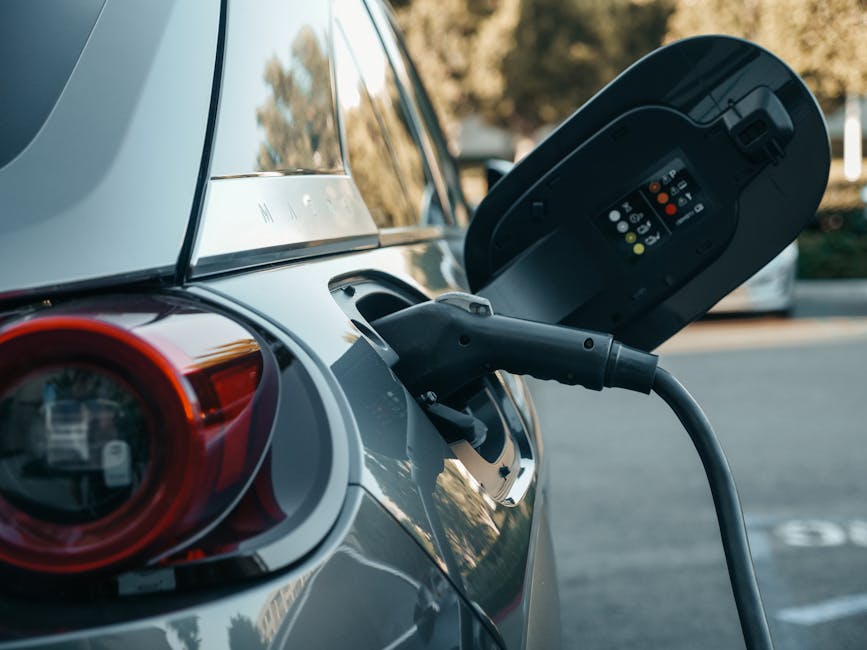As an eco-conscious consumer, I’m always on the lookout for ways in which technology intersects with sustainability. One of the most significant advancements in this realm has been the rise of hybrid vehicles. These innovative cars are not only changing the way we think about transportation but also making a tangible impact on the environment.
When I think about the future of our planet, I can’t help but consider the role that hybrid vehicles play in reducing carbon emissions and promoting cleaner air quality. The shift towards these eco-friendly cars is not just a trend; it’s a crucial step towards a greener tomorrow. In this article, we’ll delve into the specific ways in which hybrid vehicles are shaping the environmental landscape and driving us towards a more sustainable future.
Overview of Hybrid Vehicles
Hybrid vehicles combine the use of a traditional internal combustion engine with an electric propulsion system, offering improved fuel efficiency and lower emissions compared to conventional vehicles. These innovative cars play a significant role in reducing environmental impact and promoting sustainability.
What Are Hybrid Vehicles?
Hybrid vehicles are cars that utilize both an internal combustion engine fueled by gasoline and an electric motor powered by batteries. This dual-system operation allows hybrids to switch between the two power sources or use them simultaneously, optimizing fuel efficiency and minimizing emissions.
How Do Hybrid Vehicles Work?
Hybrid vehicles work by integrating the benefits of both gasoline-powered engines and electric motors. They use regenerative braking to capture energy typically wasted during coasting or braking, storing it in the battery for later use. This stored energy can then power the electric motor, reducing the workload on the gasoline engine and enhancing overall fuel efficiency.
Environmental Benefits of Hybrid Vehicles
Hybrid vehicles offer significant advantages that positively impact the environment. Let’s explore how these eco-friendly cars contribute to reducing carbon emissions and improving fuel efficiency.
Reduction in Carbon Footprint
Hybrid vehicles play a vital role in reducing harmful greenhouse gas emissions. By combining electric motors with gasoline engines, they use less fuel, resulting in lower carbon dioxide and other pollutant emissions. This reduction in emissions helps combat global warming and air pollution, making hybrid cars a sustainable transportation option.
Improved Fuel Efficiency
One key environmental benefit of hybrid vehicles is their improved fuel efficiency compared to conventional gasoline-powered cars. The integration of electric propulsion systems allows hybrids to use less gasoline, consuming fuel more efficiently. This not only helps in reducing the overall consumption of fossil fuels but also decreases the dependence on non-renewable energy sources, leading to a more sustainable transportation sector.
Environmental Challenges of Hybrid Vehicles
Hybrid vehicles, while offering significant environmental benefits, also present some challenges that need to be addressed for a more sustainable future.
- Battery Disposal and Recycling Issues
Hybrid vehicles use advanced batteries that pose a challenge when it comes to disposal and recycling. These batteries contain materials such as lithium and nickel, which can be harmful to the environment if not managed properly. Ensuring the proper disposal and recycling of hybrid vehicle batteries is crucial to prevent pollution and minimize the impact on ecosystems. - Lifecycle Emissions
The lifecycle emissions of hybrid vehicles include not only the emissions during operation but also those associated with battery production, disposal, and recycling. While hybrid vehicles typically have lower emissions during operation compared to traditional vehicles, it’s essential to consider the overall emissions throughout the vehicle’s life cycle. Proper management of these emissions is key to maximizing the environmental benefits of hybrid technology.
Comparing Hybrid Vehicles to Traditional and Electric Vehicles
When comparing hybrid vehicles to gasoline-powered vehicles, hybrid cars offer better fuel efficiency and lower emissions. In city driving, hybrids can significantly outperform traditional gasoline cars, consuming less fuel per mile due to their ability to rely on electric power at lower speeds.
Regarding the comparison between hybrid and electric vehicles, hybrids have a longer driving range than electric cars. While electric vehicles are zero-emission and excel in reducing greenhouse gas emissions, hybrids provide a more convenient option for drivers who may have range anxiety or limited access to charging stations, offering the flexibility of using gasoline when needed. Electric vehicles are ideal for urban commuting due to their zero tailpipe emissions, while hybrids strike a balance between fuel efficiency and environmental impact.
Future Prospects of Hybrid Vehicles
Hybrid vehicles continue to evolve, driven by advancements in technology and shifts in policy and market trends. Let’s delve into the exciting developments shaping the future of hybrid cars.
Technological Advancements
Innovations in hybrid vehicle technology are paving the way for more efficient and cleaner transportation solutions. Manufacturers are constantly improving battery performance, enhancing regenerative braking systems, and exploring new materials to make hybrids lighter and more energy-efficient. These advancements are crucial in boosting the overall sustainability and appeal of hybrid vehicles, offering consumers a greener alternative without compromising on performance.
Policy and Market Trends
Government regulations and changing consumer preferences are playing a pivotal role in shaping the future landscape of hybrid vehicles. With an increasing focus on reducing carbon footprints and promoting sustainability, many countries are implementing stricter emission standards and offering incentives for eco-friendly vehicles. This shift in policies is driving automakers to invest more in hybrid technology and expand their hybrid vehicle lineup. Moreover, the growing demand for hybrid cars as a practical and environmentally conscious choice is expected to drive further innovation and market growth in the coming years.




